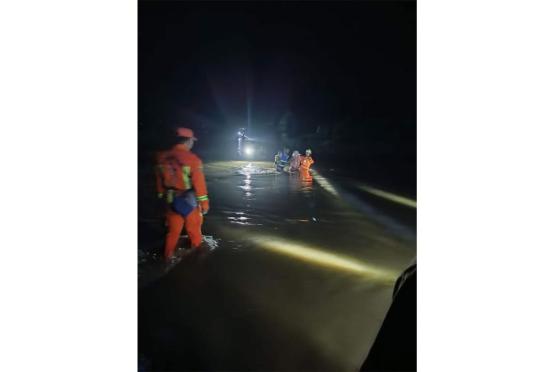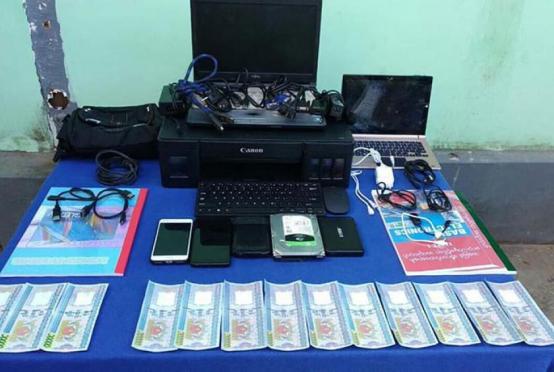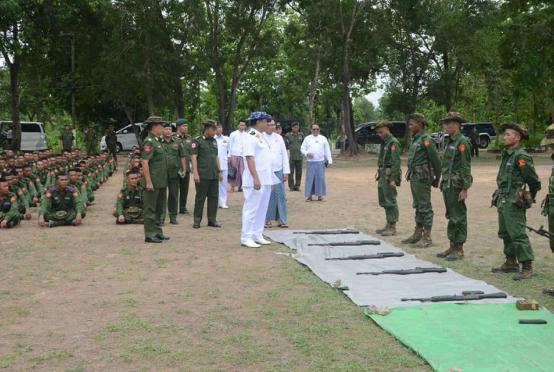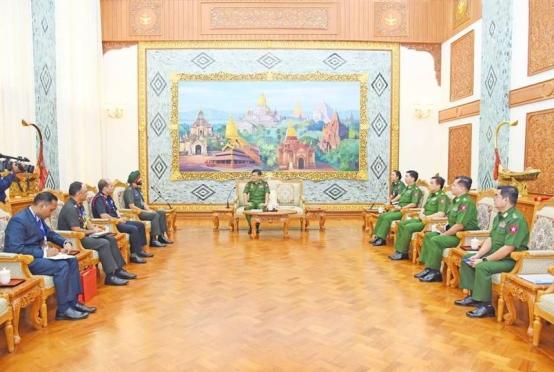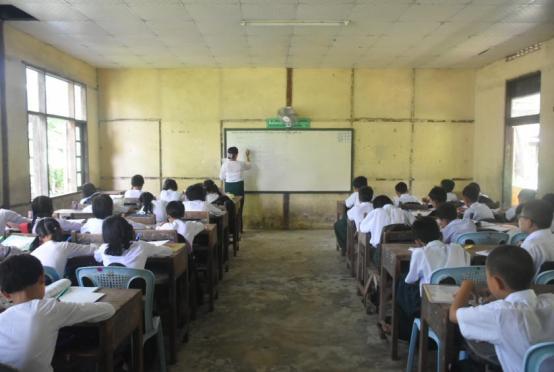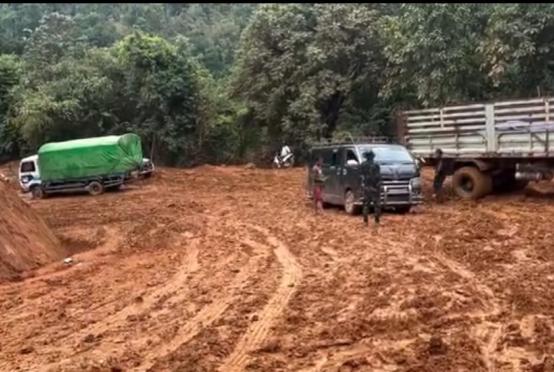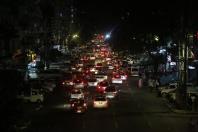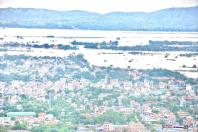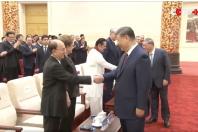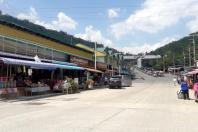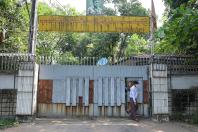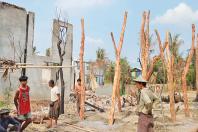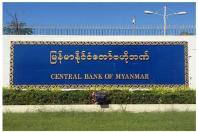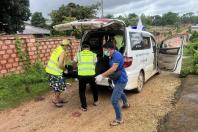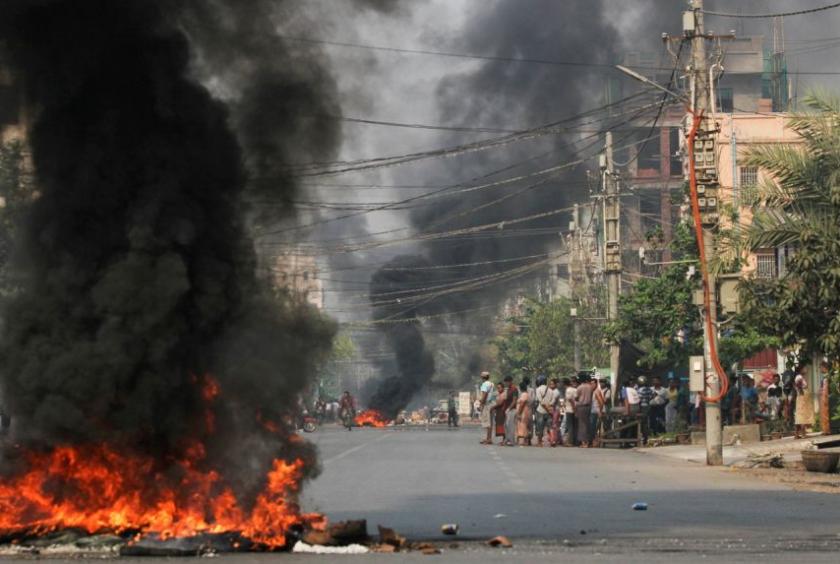
BANGKOK - Myanmar on Saturday (March 27) witnessed the deadliest violence since the Feb 1 coup as military chief Min Aung Hlaing declared that he would protect the people and safeguard democracy.
More than 90 people were killed by police and soldiers trying to suppress nationwide demonstrations against the military regime on the highly symbolic Armed Forces Day.
In images widely circulated online despite broad Internet restrictions, many people – including children – were seen shot in the head or chest.
“Dear world, we don’t need Nobel or anything. Just protect our young people and children,” tweeted Myanmar’s Civil Disobedience Movement.
The activist network coordinating work stoppages to thwart the military regime was earlier nominated by Norwegian academics for the Nobel Peace Prize.
Earlier, in the morning, Senior General Min Aung Hlaing presided over a military parade aired live from the capital Naypyitaw attended by Russia’s deputy defence minister Alexander Fomin.
“The army seeks to join hands with the entire nation to safeguard democracy,” the senior general said, in reference to the military’s claim of fraud in the Nov 8 election which was won by the National League for Democracy.
“Violent acts that affect stability and security in order to make demands are inappropriate,” he added.
Elected lawmakers challenging the legitimacy of the regime issued a rival statement.
Mr Mahn Win Khaing Than, the acting vice-president appointed by the Committee Representing Pyidaungsu Hluttaw which is working on behalf of the ousted civilian politicians, said on Saturday: “Democracy is in its infancy due to the collective efforts of all ethnic peoples to completely overthrow the decades-long oppressive military dictatorship and establish a federal democratic union.”
He called for a federal union army to protect people’s lives and property.
“The Committee Representing Pyidaungsu Hluttaw and various ethnic fraternities are now in constant talks to end the military dictatorship on Myanmar soil, and soon a multi-ethnic national unity government will emerge,” he said.
Without taking into account Saturday’s toll, 328 people have been killed and over 2,000 arrested since the coup, the Assistance Association for Political Prisoners has said.

Protesters in Yangon on March 27, 2021. PHOTO: AFP/FACEBOOK
Myanmar’s economy is expected to shrink by 10 per cent this year, according to the World Bank, and the political turmoil risks turning the country of 54 million into a regional flashpoint.
Tensions are rising between the Myanmar military and the Karen National Union, an ethnic armed group which has condemned the coup and is sheltering dissidents in its territory near the Thai border.
Anticipating possible clashes, a group of 294 villagers from Myanmar fled to Thailand by crossing the Salween river on Friday.
When asked about this, Colonel Chaidan Grisanasuwarn, commander of the special taskforce of Thailand’s 7th infantry division overseeing the area told The Straits Times: “There has been constant fighting between armed groups and the Myanmar military and people flee in fear of being forced to work as porters.
“They will not stay long and we don’t have any policy to let them stay long.”
The Myanmar military has shown no signs of relenting despite growing isolation.
The United States on Thursday slapped sanctions on two key military conglomerates. Asean countries, meanwhile, are trying to convene a special leaders’ summit to discuss the crisis.
Meanwhile, the visit by Russia’s deputy defence minister drew flak from protesters dead set against any recognition of the regime.
Russia is a key supplier for Myanmar’s military. Data from the Stockholm International Peace Research Institute show Myanmar spent about US$807 million (S$1 billion) on Russian equipment in the previous decade up to 2019.
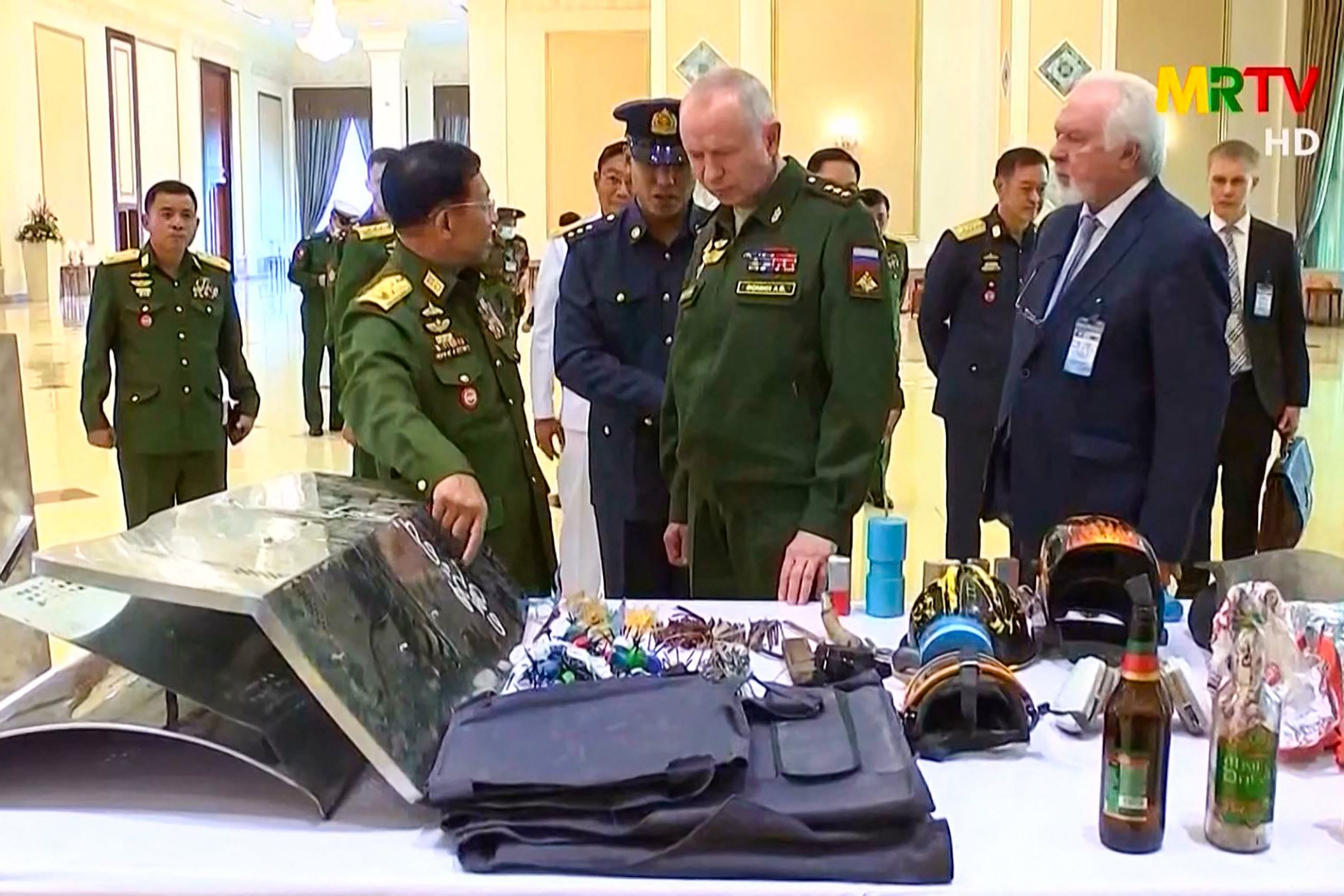
Senior General Min Aung Hlaing showing Russia’s Deputy Defence Minister Alexander Fomin items the military says were confiscated after being used in protests against the security forces, in Naypyitaw on March 26, 2021. PHOTO: AFP/MYANMAR RADIO AND TELEVISION
Mr Aaron Connelly, a research fellow at the International Institute for Strategic Studies noted the Russians tried to portray the event as a “return visit” following Senior General Min Aung Hlaing’s attendance of the Russian military’s Victory Day Parade last year.
He told ST: “A visit by Fomin right now would probably have a lot more to do with arms sales than it would have to do with showing support for the military or discouraging Western action against the military or anything like that.”

